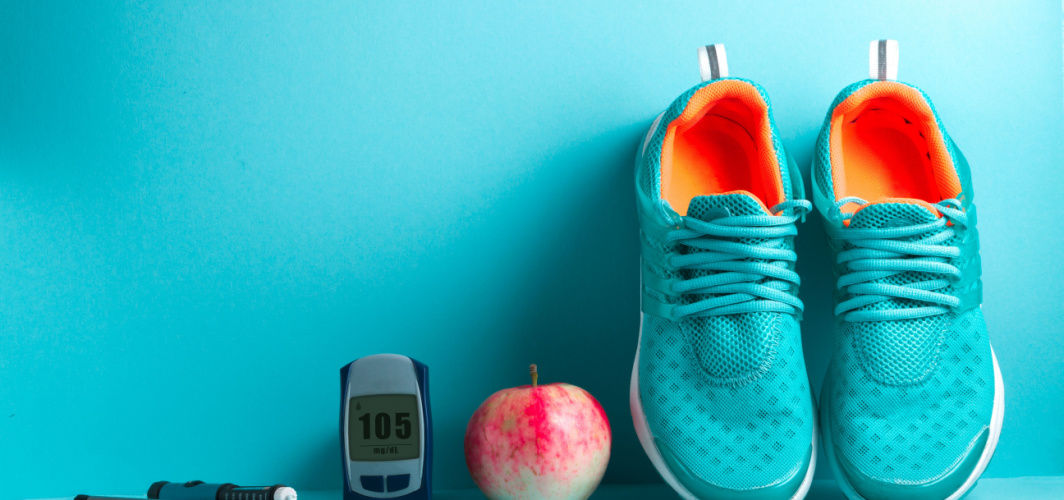Diabetes Management
What Are The Macrovascular Complications Of Diabetes?
2 min read
By Apollo 24|7, Published on - 09 July 2024
Share this article
0
0 like

Diabetes, a condition marked by high blood glucose levels, can lead to countless complications, when not controlled and managed well. One such complication category is macrovascular complications, which occur due to changes in the large blood vessels, including the coronary arteries, the aorta, and the large arteries in the brain and limbs in individuals with diabetes.
Understanding Macrovascular Complications
Macrovascular complications mainly involve issues with the arteries, which are large blood vessels that carry oxygen-rich blood from the heart to other parts of the body. Diabetes can cause damage to these arteries, leading to serious health problems, such as:
- Coronary Heart Disease: This is a condition characterised by the build-up of plaque in the coronary arteries, restricting blood flow to the heart. Diabetes can significantly increase the risk of developing this condition.
- Cerebrovascular Disease: Diabetes can impair blood flow to the brain, increasing the risk of strokes and other cerebrovascular events.
- Peripheral Artery Disease (PAD): In those with diabetes, there is an increased risk of PAD, which involves the narrowing of the arteries in the legs and limbs. This can lead to pain, gangrene, and an increased risk of amputation.
- Cardiomyopathy and Arrhythmias: These are conditions caused by structural and functional changes to the heart muscle due to diabetes, increasing the risk of heart failure and abnormal heart rhythms.
Managing Macrovascular Complications
The common factors linking diabetes to these macrovascular complications include high blood sugar levels, insulin resistance, dyslipidemia (abnormal levels of lipids in the bloodstream), high blood pressure, inflammation, and oxidative stress. Controlling your blood sugar, blood pressure, and lipid levels is crucial to preventing and managing these complications effectively.
Enrolling in a comprehensive management program like Apollo Super 6 can be immensely helpful. This program focuses on improving diet, increasing physical activity, and providing ongoing support, which is incredibly beneficial for managing diabetes and its complications.
Diabetes Management
Consult Top Diabetologists
View AllLeave Comment
Recommended for you

Diabetes Management
Is There Some Standard Care for Diabetes?
Managing diabetes requires a multifaceted approach, including lifestyle changes, medication adherence, regular monitoring, and personalized care plans. A balanced diet, physical activity, and education are foundational. Medications, blood glucose monitoring, and addressing factors like blood pressure are vital. Regular check-ups, self-care, and emotional well-being contribute. Personalization is key, with ongoing research integrating new technologies and strategies.

Diabetes Management
Understanding the Impact of Alcohol on Type 2 Diabetes
Living with type 2 diabetes doesn't necessarily mean you have to eliminate alcohol from your life entirely. However, understanding how alcohol impacts your blood sugar levels and practising moderation is key. Consult your doctor to tailor a plan that suits your lifestyle while prioritising effective diabetes management.
.jpg?tr=q-80)
Diabetes Management
Understanding the Honeymoon Phase in Diabetes: Impact on Management and Treatment
Understanding the honeymoon phase in diabetes can be key to managing the condition effectively. This period of improved blood sugar control can be misleading, but with careful monitoring and the right support, patients can navigate this phase safely. Continuous management and lifestyle adjustments remain crucial in both type 1 and type 2 diabetes. To make this journey easier, consider a comprehensive guide like the Apollo Super 6 programme for effective diabetes management.
Subscribe
Sign up for our free Health Library Daily Newsletter
Get doctor-approved health tips, news, and more.
Visual Stories

8 Fruits That are Incredibly Healthy for Diabetes
Tap to continue exploring
Recommended for you

Diabetes Management
Is There Some Standard Care for Diabetes?
Managing diabetes requires a multifaceted approach, including lifestyle changes, medication adherence, regular monitoring, and personalized care plans. A balanced diet, physical activity, and education are foundational. Medications, blood glucose monitoring, and addressing factors like blood pressure are vital. Regular check-ups, self-care, and emotional well-being contribute. Personalization is key, with ongoing research integrating new technologies and strategies.

Diabetes Management
Understanding the Impact of Alcohol on Type 2 Diabetes
Living with type 2 diabetes doesn't necessarily mean you have to eliminate alcohol from your life entirely. However, understanding how alcohol impacts your blood sugar levels and practising moderation is key. Consult your doctor to tailor a plan that suits your lifestyle while prioritising effective diabetes management.
.jpg?tr=q-80)
Diabetes Management
Understanding the Honeymoon Phase in Diabetes: Impact on Management and Treatment
Understanding the honeymoon phase in diabetes can be key to managing the condition effectively. This period of improved blood sugar control can be misleading, but with careful monitoring and the right support, patients can navigate this phase safely. Continuous management and lifestyle adjustments remain crucial in both type 1 and type 2 diabetes. To make this journey easier, consider a comprehensive guide like the Apollo Super 6 programme for effective diabetes management.
